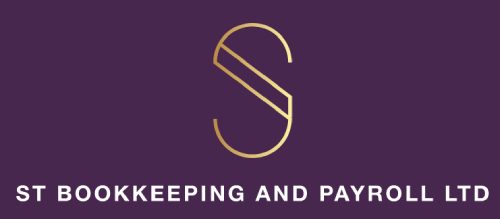
Blog
UK Business Financial Management News and Updates
At ST Bookkeeping and Payroll Ltd, we always keep up with the latest developments in financial management for UK business, so we can continue to deliver the very best services for our clients. On our blog, we take you through the implications of new policy developments and sector news to help you fully understand the environment for UK businesses. If you want expert finance support for your business, feel free to contact us today.

What can my cash flow tell me about the overall health of my business?
If there’s one figure you know in your business, I expect it’s your bank balance. And it’s a pretty important one. But alone it doesn’t give you any information about what’s happening in your business. At ST Bookkeeping and Payroll Ltd we regularly speak to our clients about their cash flow forecast because it’s such a crucial part of the financial picture. Cash flow hasn’t traditionally been part of the service business owners expect from their bookkeepers and accountants, but as technology has changed, it’s so simple for us to plug your accounts data into a forecasting tool and give you even deeper, real time insights into what’s happening in your business. But why would you need that?
In this article, I’ll share what your cash flow can really tell you about your business.
What do you mean by Cash Flow?
Cash flow is essentially the net amount of cash and cash equivalents moving into and out of your business. It’s a critical indicator of your business’s financial health. Understanding the nuances of your cash flow can help you make informed decisions, predict issues in the future, and run a more financially-stable business. Here are some of the insights that your cash flow can provide about the overall health of your business:
Operational efficiency
If you have more money in than out, you have positive cash flow. This indicates that your business is generating more money than it is spending. This is often a sign that your business operations are running smoothly and efficiently. Conversely, a negative cash flow might indicate operational challenges, such as high costs, poor inventory management, or inefficient processes that could be draining your resources.
Financial solvency
If you haven’t got cash, you can’t meet your financial obligations – no matter how profitable you are on paper. A consistent positive cash flow suggests that your business is solvent and can comfortably pay its debts, salaries, and other operational expenses on time. If you find your business frequently struggling to cover these expenses, there’s a problem – and your bookkeeper or accountant is a great person to help.
Growth potential
This isn’t about how much money you have coming in, it’s about where your money is coming from. Analysiing where your cash comes from can tell you a lot about your business’s growth potential. For instance, reinvestment of cash into business activities like marketing, product development, or expansion can indicate a strategy geared towards growth. If your cash flow is healthy, you’ll have more flexibility to invest in new opportunities, if it’s not, you won’t. Investor and lender attractiveness If you’re looking for debt, investment, or even to sell your business in the future, your cash flow is vitally important in making your business attractive to investors and lenders. They often look for businesses with positive cash flow as it suggests a lower risk of investment.
Market conditions and consumer demand
Your cash flow can also reflect broader market conditions and demand for your products and services. For example, seasonal variations in cash flow might be normal in your industry but variations out of the norm could indicate a need for better cash management or a need for a change to your business model to accommodate changes in the market.
Conclusion
At ST Bookkeeping and Payroll Ltd the reason we care so much about your cash flow is that it shows the long-term viability of your business. Patterns of steady, positive cash flow over a long period are a good indicator that your business model is sustainable. On the other hand, if cash flow problems persist, it might be a sign that you need to make fundamental changes.
And if you’re anything like our clients, you’d like to have foresight of problems ahead as soon as you possibly can.
We regularly review our clients’ cash flow to equip them with the knowledge to make proactive adjustments when they’re needed. We want your business to be robust and responsive to internal and external pressures.
If you’d like to talk more about your cash flow, book a call with us today here.

Budgeting is Like Planning a Holiday: How a Bookkeeper Can Help You Achieve Both
When you think about planning a holiday, you probably picture setting a budget, researching destinations, and making sure every detail is covered to ensure a smooth trip. The same principles apply to budgeting for your business. However, just as you might hire a travel agent to take care of the intricate details of your trip, hiring a bookkeeper can streamline your financial planning process, giving you the peace of mind to actually enjoy that much-needed holiday.
Set Your Destination
Every great journey starts with a destination in mind. For your business, this means setting clear financial goals. Whether you aim to expand your operations, invest in new equipment, or build a cash reserve, having a target helps you chart your course. A professional bookkeeper can assist in defining these goals based on your financial health, market conditions, and long-term vision.
Determine Your Budget
Just as you wouldn’t embark on a holiday without knowing your budget, you shouldn’t run your business without a clear financial plan. A bookkeeper helps you determine your budget by analysing your income sources and allocating funds to different areas of your business. AT STBOOKKEEPING AND PAYROLL LTD we ensure you cover all essentials whilst keeping some funds aside for unexpected expenses.
Research and Plan
In the same way you research hotels, flights, and activities for your holiday, a bookkeeper conducts thorough research to help you plan for business expenses. We will look into your business expenses and provide you with a detailed financial roadmap. We may even be able to help you save some money along the way!
Track Your Spending
On holiday, you keep track of your spending to avoid blowing your budget. Similarly, a bookkeeper monitors your business expenses, ensuring you stay on track. We provide regular financial reports, helping you understand where your money is going and making adjustments as necessary.
Review and adjust as needed
Just as you might adjust your holiday plans when new opportunities arise or costs change, your business budget needs to be flexible. A bookkeeper helps you adapt to these changes, reallocating funds based on actual performance and emerging opportunities, ensuring your business remains agile and responsive.
Enjoy the Journey
The ultimate goal of planning a holiday is to enjoy it. With a well-managed budget and the support of a bookkeeper, you can enjoy the journey of running your business. There will be no need for burying your head in the sand any longer when it comes to your business finances. Financial stability and accurate bookkeeping bring peace of mind, allowing you to focus on growth and innovation.
How Outsourcing Bookkeeping Frees Up Your Time
Outsourcing your bookkeeping to ST BOOKKEEPING AND PAYROLL LTD not only ensures accuracy and compliance but also frees up valuable time. Time that you can use to plan your next business move or, even better, take a much-needed holiday without the constant worry of your business’s financial health. With a professional handling your books, you can relax, knowing that your financial affairs are in expert hands.
**Conclusion:**
Budgeting is indeed like planning a holiday. It requires careful planning, tracking, and flexibility. By hiring a bookkeeper, you ensure that your business’s financial journey is as smooth and enjoyable as a well-planned trip. So, take the step to outsource your bookkeeping, gain true financial visibility, and most importantly, give yourself the freedom to enjoy that holiday you’ve been longing for. Your business and your well-being will thank you.

What is the difference between bookkeeping and accounting?
Bookkeeping is the process of recording daily financial transactions in a consistent and systematic manner. It forms the foundation of the financial record-keeping process. Our bookkeepers can assist you with the following to help you to run your business successfully. Recording Transactions: Bookkeepers record all business financial transactions, including sales, purchases, receipts, and payments. Maintaining General Ledgers: They maintain and balance the main accounts such as accounts payable, accounts receivable, and general ledgers where all other transactions are recorded. Bank Reconciliation: Bookkeepers reconcile bank statements with the company’s financial records to ensure accuracy. Payroll Processing: Bookkeepers also handle the preparation of payroll and maintenance of payroll records if this service is required by a client. Invoice Management: Bookkeepers manage the recording of invoices to customers and from suppliers and often issue these on the client’s behalf if such service is required. Bookkeepers often use accounting software such as QuickBooks, Xero, or similar platforms to manage records efficiently.
On the other hand, the primary purpose of accounting is to provide a clear and comprehensive view of the company’s financial position, which is crucial for strategic planning, decision-making, and regulatory compliance.
Accounting also involves the interpretation and analysis of financial data to generate reports and provide insights into a business. It is therefore an accountant’s role to provide advice on financial strategy, risk management, and other financial matters affecting a business.
BOOK A CALL to see how our bookkeepers can help. Accounting involves more strategic and analytical information.
© 2024 ST Bookkeeping and Payroll Ltd

